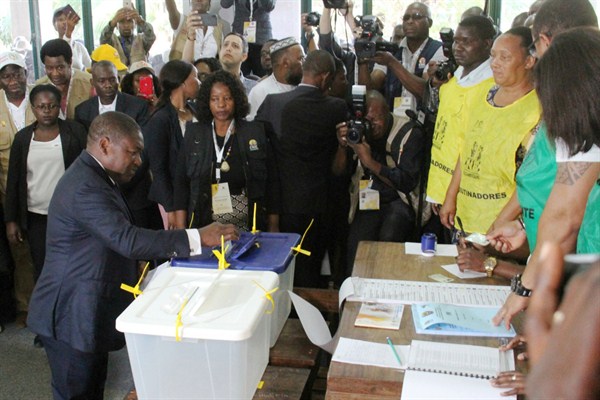Editor’s Note: Every Friday, Andrew Green curates the top news and analysis from and about the African continent.
Key presidential elections on either end of the continent this week delivered markedly different results. While a vote in Mozambique appears to have secured a victory for the longtime ruling party, elections in Tunisia may have introduced a new political era.
Tunisia’s presidential campaign, which outsider Kais Saied won in a landslide, had been full of surprises from the beginning. The vote was moved up a few months after the country’s first democratically elected president, Beji Caid Essebsi, died in office. An initial run-off vote saw a field of 26 candidates narrowed down to two unlikely contenders: Saied, a conservative law professor, and media mogul Nabil Karoui, who spent much of the election period in jail on corruption charges. In a WPR briefing earlier this month, Francisco Serrano said the emergence of the political outsiders signaled a rejection of “the two main ideological and political currents that have held sway since 2011: secular liberalism and political Islam.”

